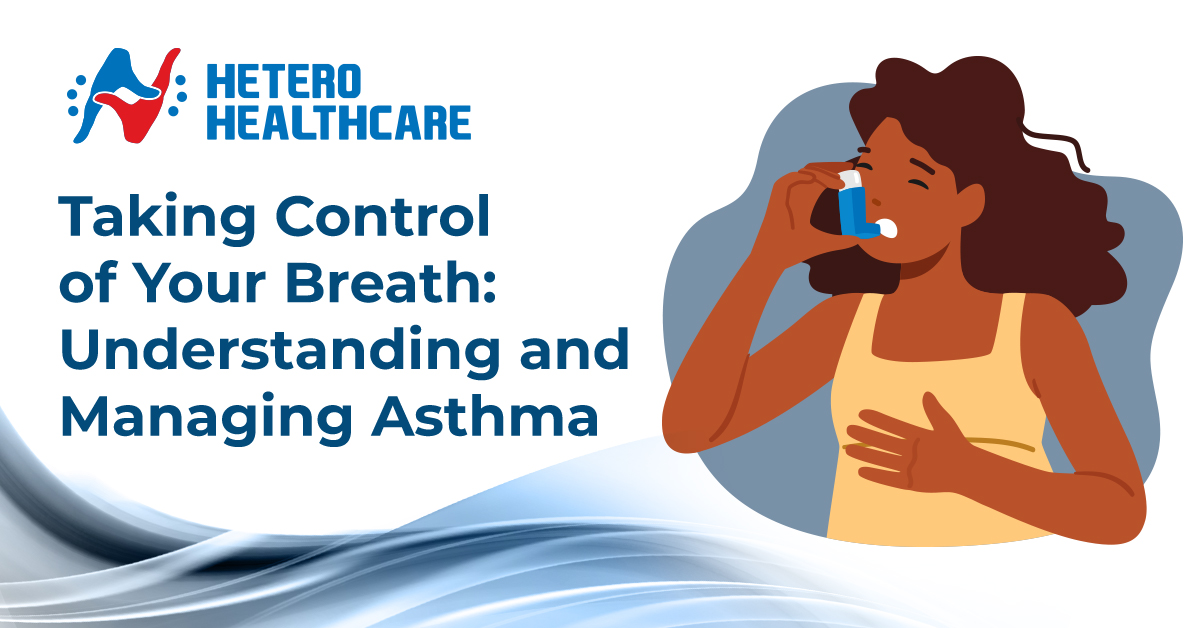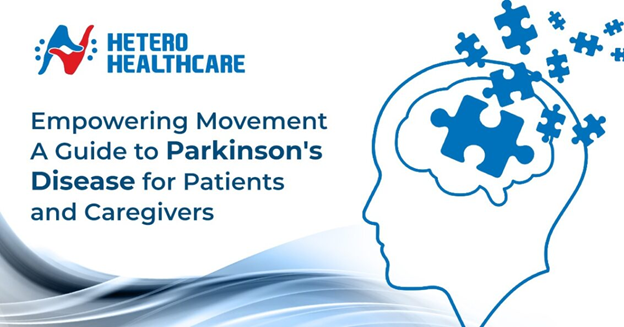Hetero Healthcare
25 May 2024

Asthma can feel like a constant battle for air, leaving you breathless and wheezing. But with knowledge and the right approach, you can take control of your asthma and live a full, active life. This blog aims to empower you with the information you need to understand your asthma, manage triggers, and breathe easier.
Asthma is a chronic inflammatory condition that affects the airways in your lungs. These airways become narrowed and inflamed, making it difficult to breathe, especially when exposed to triggers. During an asthma attack, the muscles around the airways tighten further, producing mucus that further clogs the airways.
The signs and symptoms of asthma can vary from person to person and may occur occasionally or all the time. Here are some common symptoms to watch out for:
If you experience any of these symptoms, it's crucial to see a doctor for proper diagnosis and to develop an asthma management plan. Early diagnosis and treatment can significantly improve your quality of life and prevent future complications.
Here are some key strategies to effectively manage your asthma and live a full, active life
Many people with asthma also have allergies. Allergies can trigger asthma attacks, so managing allergies is an essential part of asthma management. Here are some tips
Regular exercise is essential for overall health and well-being, and people with asthma can still enjoy an active lifestyle. Here are some tips:
While the tips mentioned above are universally applicable, managing asthma in India presents some unique challenges. Here's a closer look
Anjali, a young woman living in a bustling Indian city, has struggled with asthma since childhood. Every morning, she wakes up coughing and wheezing due to dust and smoke pollution that permeates her neighborhood. While she carries her inhaler, affording regular refills can be a financial strain for her family.
Anjali avoids playing outdoors as much as she'd like, fearing an asthma attack triggered by dust or pollen. She dreams of becoming a dancer but worries strenuous activity might trigger her asthma. Anjali's story highlights the additional burdens asthmatics in India can face.
Despite these challenges, there are ways for asthmatics in India to manage their asthma effectively
Asthma can be a challenging condition, but with proper knowledge, management strategies, and access to healthcare, you can live a full and active life. If you have asthma, remember, you're not alone. By taking control of your asthma, you can breathe easier and embrace a life filled with possibilities.
Hetero Healthcare

Hetero Healthcare27 May 2024
The Thyroid: Understanding Your Body's Master Gland
The thyroid gland, a small butterfly-shaped gland located at the base of your neck, plays a critical role in regulating your metabolism.

Hetero Healthcare30 Apr 2024
A Comprehensive Guide to Malaria
Malaria, a mosquito-borne infectious disease, continues to pose a significant threat to global health. At Hetero Healthcare, we are committed to raising awareness about this preventable illness and empowering individuals with knowledge to protect themselves. This comprehensive blog delves into the causes, symptoms, and effective prevention strategies for malaria.

Hetero Healthcare30 Apr 2024
A Guide to Parkinsons Disease for Patients and Caregivers
At Hetero Healthcare, we understand the profound impact Parkinson's disease (PD) can have on individuals and their loved ones.

Hetero Healthcare17 May 2023
What are the Most Common Causes of Neck Pain, and How Do Transdermal Patches Help?
Neck pain is a common complaint that affects millions of people worldwide.